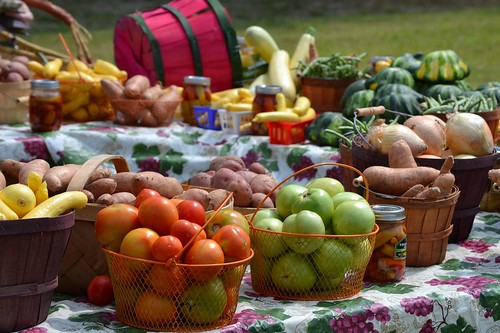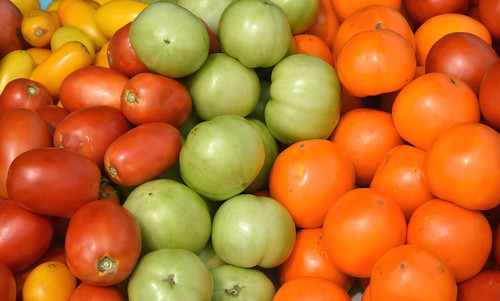
Across the nation there is a strong interest to supply healthy, local foods to schools while supporting regional farmers and the local economy. Photo: Auburn University College of Agriculture.
Thanks to a recent grant from USDA, the Wisconsin Department of Agriculture, Trade, and Consumer Protection is now in better position to help get locally grown potatoes, carrots, apples, broccoli, and cheese onto school lunch plates. In Wisconsin, and across the nation, there is a strong interest to supply healthy, local foods to schools while supporting regional farmers and the local economy. USDA is helping create economic opportunities for producers by supporting projects that increase access to fresh, healthy food for students and consumers, and connect rural and urban communities.
Today Secretary Tom Vilsack announced more than $35 million in grants to help ensure the livelihoods of our nation’s farmers and ranchers while strengthening rural economies around the country. These grant programs play an important role in American agriculture and in communities by supporting local and regional food systems and giving farmers and ranchers the chance to explore new market opportunities.
The announcement included two grant programs administered by my agency, USDA’s Agricultural Marketing Service (AMS). The Farmers Market and Local Food Promotion Program awarded $25 million in grants, which will fund 160 projects through the Local Food Marketing Promotion Program (LFPP) and 164 projects under the Farmers Market Promotion Program (FMPP).
We also awarded over $1 million through the Federal-State Marketing Improvement Program (FSMIP), providing matching grant funds for 15 projects in 14 states. These grants are awarded to state departments of agriculture, colleges and universities, and other appropriate agencies. You can find more information about the projects funded by each of these programs on the AMS grants website.
In addition to the AMS grants, USDA’s Food and Nutrition Service (FNS) awarded over $8 million in Supplemental Nutrition Assistance Program (SNAP) Farmers Market Support Grants, which help farmers markets, farm stands and farmers selling direct to the public improve SNAP operations.
All of these grants work together to help communities maintain their agricultural heritage and strengthen the local economy. The City of Elgin, Texas, is one example. Historically an agricultural community, the City of Elgin proposed a project to help farmers, entrepreneurs and institutional buyers develop new markets.
They were awarded a 2015 LFPP grant of $95,130 to provide technical assistance for value-added processing of local fruits and vegetables. Using a business plan focused on a value-added local food processing center, farmers from across the region will be involved in developing products that can be made and sold using local fruits and vegetables. Tomatoes, egg plants and zucchini are ripe for creating value-added products. Elgin’s food processing center researched products that capitalized on the versatility of their local produce to make and market locally-grown items such as, ketchup, fermented drink mix and Texas-grown, organic-sustainable salsa.
USDA continues to established solid partnerships with communities all over the country like the one with the City of Elgin. Grant funds are one of the many ways that AMS will strengthen these partnerships and continue to support America’s farmers, ranchers, and small businesses.

Tomatoes are ripe for creating value-added products helping farmers and USDA grants help entrepreneurs and institutional buyers develop new markets for local foods. Photo: Richard Tyner, USDA.
No comments:
Post a Comment
Note: Only a member of this blog may post a comment.